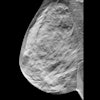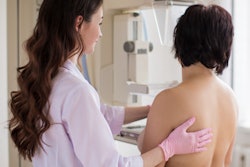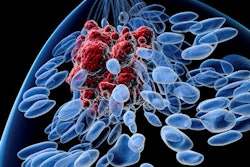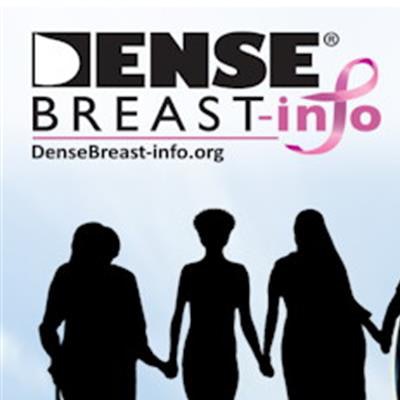
JoAnn Pushkin had normal mammograms leading into 2005, but she couldn't help but notice a growth progressing on her chest via self-examination. When she came in for yet another that year, it came back normal again. However, subsequent ultrasound told a different story.
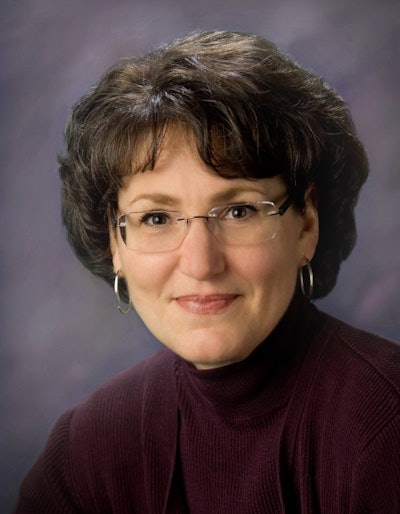 JoAnn Pushkin.
JoAnn Pushkin.It was breast cancer. Pushkin didn't understand. However, a clinician told her after the fact that she had dense breasts, something Pushkin didn't know anything about at the time.
"That was my first awareness, as is for many other women in other states," Pushkin said.
That event spurred Pushkin in late 2015 to co-create and launch DenseBreast-info.org, an educational site aiming to inform women and healthcare providers about the danger posed by breast density. Research over the years points to breast density as a risk factor for developing cancer and as an additional risk as standard mammography struggles to detect cancers within dense breast tissue. However, many women aren't aware of mammography's shortcomings.
Today though, the site is moving forward to advance awareness of dense breast tissue with #WorldDenseBreastDay, which has been added to the National Day Calendar. The event aims to further educate women and healthcare providers about breast density and its association with increased breast cancer risk.
"This is a reflection of the need for information on the topic, no matter where that dense breast conversation is happening in the world," said Pushkin, who serves as executive director for DenseBreast-info.org.
To ring in the worldwide event, the educational site is doing a social media blitz throughout the day. This includes posting informational videos and images on its social media accounts twice hourly. Posts will be in English and Spanish.
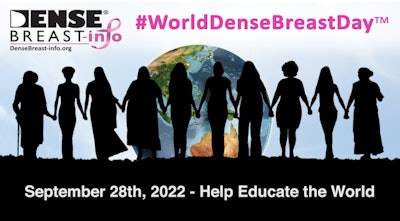 DenseBreast-info.org is hosting and celebrating the inaugural #WorldDenseBreastDay, which aims to increase awareness about the need for women to be better informed and educated about breast density as a risk factor in developing breast cancer. Image courtesy of DenseBreast-info.org.
DenseBreast-info.org is hosting and celebrating the inaugural #WorldDenseBreastDay, which aims to increase awareness about the need for women to be better informed and educated about breast density as a risk factor in developing breast cancer. Image courtesy of DenseBreast-info.org.While many states in the U.S. have laws requiring healthcare providers to inform women about dense breasts, "informed" doesn't necessarily mean "educate." Pushkin said that's because some states don't require healthcare providers to tell women they have dense breasts, but rather inform women about breast density in general. This in turn has led to awareness gaps for women receiving their regular mammograms.
Pushkin also said this national day coincides with recent European guidelines calling for healthcare providers to better inform women on breast density. The European Society of Breast Imaging also earlier this year called for all providers of mammography screening to share density information with women being screened.
"Now, the conversation has ignited around the world," Pushkin said. "Expanding the day to become World Dense Breast Day was just a natural growth to meet the worldwide interest and need for information on the topic."
That sentiment was echoed by Dr. Wendie Berg from the University of Pittsburgh, co-founder of DenseBreast-info.org, who said it is essential that patients receive accurate information about their breast density and what to do after their mammograms.
"While in the U.S., we wait for final implementation of a national breast density reporting standard by the U.S. Food and Drug Administration [FDA], educational events like #WorldDenseBreastDay are essential to provide women the information they need to make their own breast health decisions," Berg told AuntMinnie.com.
#WorldDenseBreastDay also stems from previous efforts by Dense-Breast-info.org. The group in 2019 launched a similar initiative with Yale University, where medically sourced material on breast density was disseminated through social media.
While the goal is to better inform women everywhere about breast density, Pushkin said radiologists and clinicians can also learn from this day to develop helpful tools to better communicate with women undergoing breast cancer screening. The educational group also encourages healthcare professionals to share posts from the day.
Pushkin said she hopes the day will also help save more lives and help women get earlier diagnosis and treatment to breast cancer. She underwent multiple surgeries and chemotherapy rounds, as well as had a recurrence in 2010.
"Nothing will prevent these women from getting breast cancer. What we're doing is just a matter of when we are going to find it," she said.
Since her initial diagnosis, Pushkin has also volunteered on medical advisory committees and advocacy groups. She also co-founded the Density Education National Survivors' Effort (DENSE). Her story also inspired state and federal laws that went into effect over the past decade, including New York's Breast Density Inform Law, the federal Breast Density and Mammography Reporting Act, and a regulatory amendment consideration for the FDA's Mammography Quality Standards Act.
#WorldDenseBreastDay will be timed annually for the last Wednesday of each September, which Pushkin said will lead into Breast Cancer Awareness Month.

